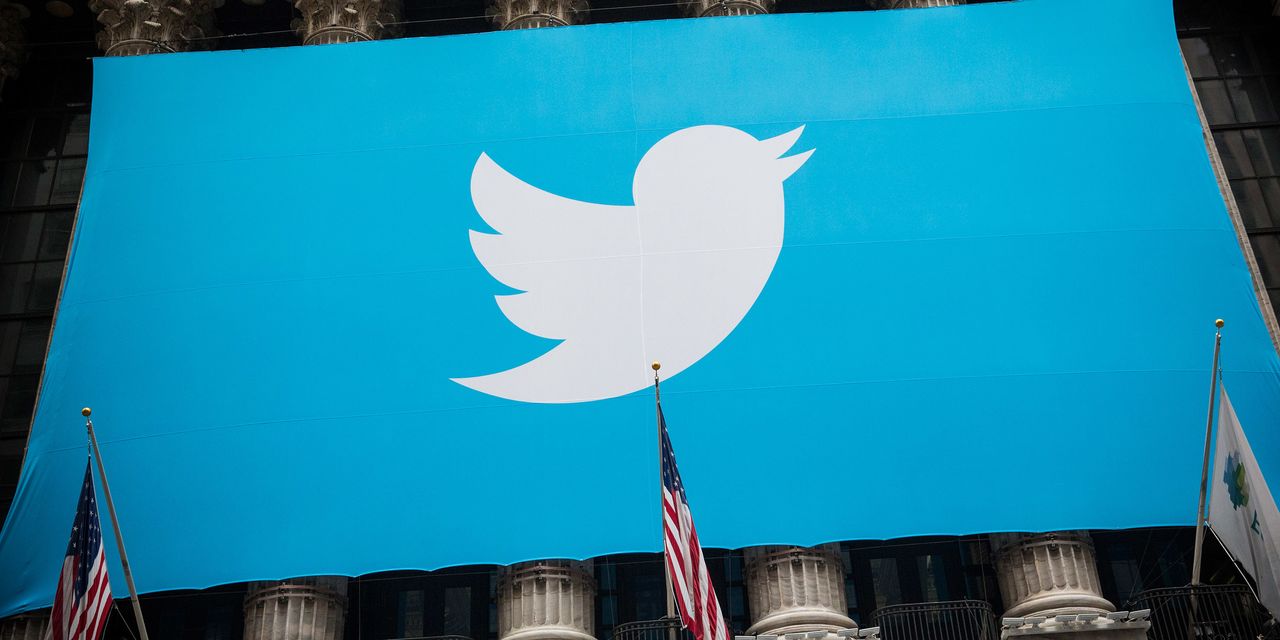After Snap Inc. issued a grim warning on the state of the advertising landscape, Twitter Inc. blamed the economy and more as it fell short with its own result Friday.
Twitter
TWTR,
missed revenue expectations with its second-quarter results while swinging to a loss. The social-media company is embroiled in its merger saga with Tesla Inc.
TSLA,
Chief Executive Elon Musk, and it reported results in a more subdued form Friday. As it did a quarter earlier, Twitter stuck to a fairly simple release while skipping the traditional earnings call.
Twitter’s revenue for the latest quarter came it at $1.18 billion, nearly flat with the $1.19 billion it reported a year earlier, while analysts surveyed by FactSet were expecting $1.32 billion. The company said in a release that the results reflected “advertising industry headwinds associated with the macro environment as well as uncertainty related to the pending acquisition of Twitter by an affiliate of Elon Musk.”
Twitter’s release didn’t detail exactly how the Musk situation affected its business from a revenue perspective, and a company spokesperson said that Twitter wasn’t providing additional breakdowns beyond what was mentioned in the release.
“They’re kind of drifting is the perception I have and I think others have and I think the markets have,” University of Richmond law professor Carl Tobias told MarketWatch.
Twitter shares were down as much as 2.1% in morning trading, but reversed course to finish the session up 0.7%.
See also: Twitter has more to worry about than Elon Musk
The company notched a second-quarter net loss of $270 million, or 35 cents a share, whereas it posted net income of $66 million, or 8 cents a share, in the year-prior quarter. Twitter noted that it incurred about $33 million in costs related to the Musk acquisition arrangement in the second quarter, as well as about $19 million in costs related to severance.
On an adjusted basis, the company posted an 8-cent loss per share. It recorded 20 cents in adjusted earnings per share a year earlier. The FactSet consensus for the most recent quarter was for 14 cents in adjusted EPS.
The downbeat financial results were “not a big surprise,” in the view of Baird analyst Colin Sebastian, partly due to the “well-documented deceleration in broader ad spending through the quarter,” along with recent Musk disclosures.
Twitter reported 237.8 million monetizable daily active users for the quarter, whereas analysts were expecting 238.1 million.
“Overall we would characterize the [user] metrics as better than feared and holding up relatively firm in this environment,” Wedbush analyst Dan Ives wrote.
Opinion: As Snap melts down, its founders make sure to protect the people who matter: themselves
The results come after Snap
SNAP,
disclosed second-quarter revenue Thursday afternoon that fell short of expectations. Snap pointed in its shareholder letter to “increasing competition for advertising dollars that are now growing more slowly.”
In light of Snap’s “nightmare” performance, Twitter’s report wasn’t as bad, according to Ives, showing that “digital ad spending is not falling off a cliff like feared, which is a positive for others in the space.”
But MoffettNathanson’s Michael Nathanson was more downbeat about Twitter’s positioning.
“We believe Twitter is especially susceptible in this macro environment given its focus on brand spending, which we believe is less resilient than performance marketing especially in times of economic weakness,” he wrote. “Further, Twitter is a digital platform where marketers can turn on and off spending in real-time, which is why we are likely to see their ad revenues take a hit first before other brand platforms like linear TV.”
Don’t miss: Here are 5 things we’ve learned so far from earnings season
Baird’s Sebastian highlighted a similar concept, writing that companies focused on tightening their belts often see ad spending as an early area to cut.
“This also impacts digital advertising near term more rapidly than other formats, but also means recovery can/will be faster,” he wrote.
Twitter shares have fallen about 19% over the past three months in a tumultuous period that saw Musk strike a $44 billion deal to buy the social-media platform before declaring that he intended to terminate the deal, arguing that Twitter understates the prevalence of bot accounts on the platform and stymied Musk’s efforts to get at the true number. Twitter is looking to move forward with the original deal.
That matter is headed for court in October, after a judge sided with Twitter’s request for an expedited fall trial.
